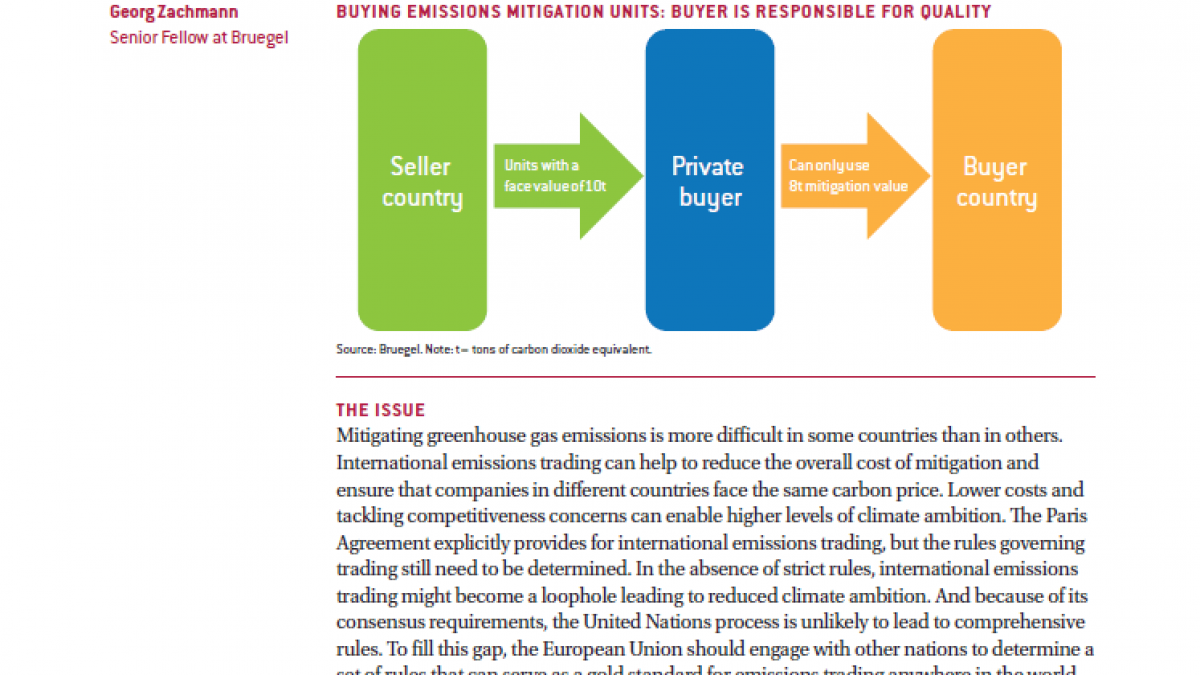The carbon buyers’ club: international emissions trading beyond Paris
The effort to define rules for international emissions trading faces the strong desire of nation states to develop their own climate policies, which c

The issue
Mitigating greenhouse gas emissions is more difficult in some countries than in others. International emissions trading can help to reduce the overall cost of mitigation and ensure that companies in different countries face the same carbon price. Lower costs and tackling competitiveness concerns can enable higher levels of climate ambition. The Paris Agreement explicitly provides for international emissions trading, but the rules governing trading still need to be determined. In the absence of strict rules, international emissions trading might become a loophole leading to reduced climate ambition. And because of its consensus requirements, the United Nations process is unlikely to lead to comprehensive rules. To fill this gap, the European Union should engage with other nations to determine a set of rules that can serve as a gold standard for emissions trading anywhere in the world.
Policy challenge
The effort to define rules for international emissions trading faces the strong desire of nation states to develop their own climate policies, which collides with the need for tradable units in one country to be equivalent to tradable units in another country. To overcome this dilemma we propose a club of carbon-buying countries that would regulate only imported mitigation outcomes. We propose that private parties would be able, if permitted by the participating governments, to transfer any type of privately tradable emissions reduction unit across borders. But they would also be liable if the foreign units do not represent sufficient mitigation in the selling county. To bridge the period before final settlement, private parties would be able to borrow domestic compliance units, based on collateralising a certain amount of foreign units.



